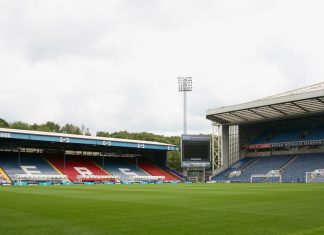Valencia, who pick up third as predictably as the top two finish in the, err, top two, will be the closest challengers but it is hard to see how they can compete with the talent at the disposal of the traditional Spanish giants.
What will be most interesting is whether Barcelona can carry on with the same type of form they showed under Pep Guardiola. Tito Vilanova, his number two, has taken over. Often when an assistant becomes the number one, players can stop putting in the same level of effort as they may have under the predecessor. They may feel more comfortable around them, and therefore believe they can get away with more.
It is hard to see that being the way at Barcelona. Players like Xavi, Leo Messi and Andres Iniesta would perform with the same professionalism and dedication if there was no manager. But can Vilanova replace Guardiola effectively? Guardiola must think so, given how much emphasis he played on his assistant’s role whilst at the club. And Barcelona’s system is as much down to years of training and hard work as it is to whomever is at the helm at any one point. But Guardiola’s attention to detail and tactical nous is difficult to replicate, and that alone is reason for observers to ponder whether Vilanova is an adequate replacement.
Real Madrid on the other hand, will look to continue where they left off last season. Jose Mourinho is looking to strengthen his squad with the signing of Luka Modric. That will give some added depth and ensure Mesut Ozil and Sami Khedira get more opportunity to rest. So much rests on Cristiano Ronaldo though, his individual brilliance carrying Madrid so often. It is hard to imagine either him or Messi letting up, both still not at their peak you would imagine, though at the same time how either can surpass their achievements of reent years is a mystery.
Who wins the league is open to question. It should be another thrilling battle between the pair, but one likely to come down to the Clasicos as is so often the case.
Malaga finished fourth last year, and were in theory the only team capable of challenging Barcelona and Real Madrid financially, thanks to their Qatari owners. But now that is beyond them, as their decision to “restructure their finances for financial fair play” renders them incapable of paying their bills. In the fire sale that has followed Santi Cazorla and Salomon Rondon have both departed, and they have been forced to go looking for cast offs from Paris St Germain, whose owner is the cousin of Malaga’s chief.
Atletico Madrid will be looking to pick up from the end of last season when they did so well under Diego Simeone, almost qualifying for the Champions League and winning the Europa League. They have held onto Falcao, and should be a force and a contender for fourth. As could Athletic Bilbao, although Marcelo Bielsa’s future has been in doubt this summer despite his heroics last season. And the loss of Fernando Llorente would be a huge blow, and necessitate a swift and intelligent signing to replace his quality. But Athletic were exhausted at points last season, and Bielsa either needs to lower the tempo of their game or add depth to the squad if they are to challenge for the top four.
Elsewhere, Levante would take a repeat of last season and the European qualification it brought, though they at a time looked like they could even reach the top four. It was a remarkable season for them, and they should be, along with the likes of Osasuna, Sevilla and Espanyol, in that clutch of teams scrabbling for a European finish.
It should be another fascinating La Liga season, as much for the off the field politics as what happens on the pitch. Spain’s football is at a difficult moment with disputes over the domination of tv revenues by the big two and the excessive debts in the game. But then the national team continues to dominate, whilst they have the two best teams in Europe. And Spain did show a strength in depth others thought they did not have with three of the last four in the Europa League, demonstrating they are not a two team show on the continent.
La Liga will certainly see tight battles both at the top and the bottom to avoid the drop and to reach Europe and claim medals. Villarreal’s relegation last year, a season after qualifying for the Champions League, emphasised that. But expect the gap between top two and the rest to become even more pronounced once again.







